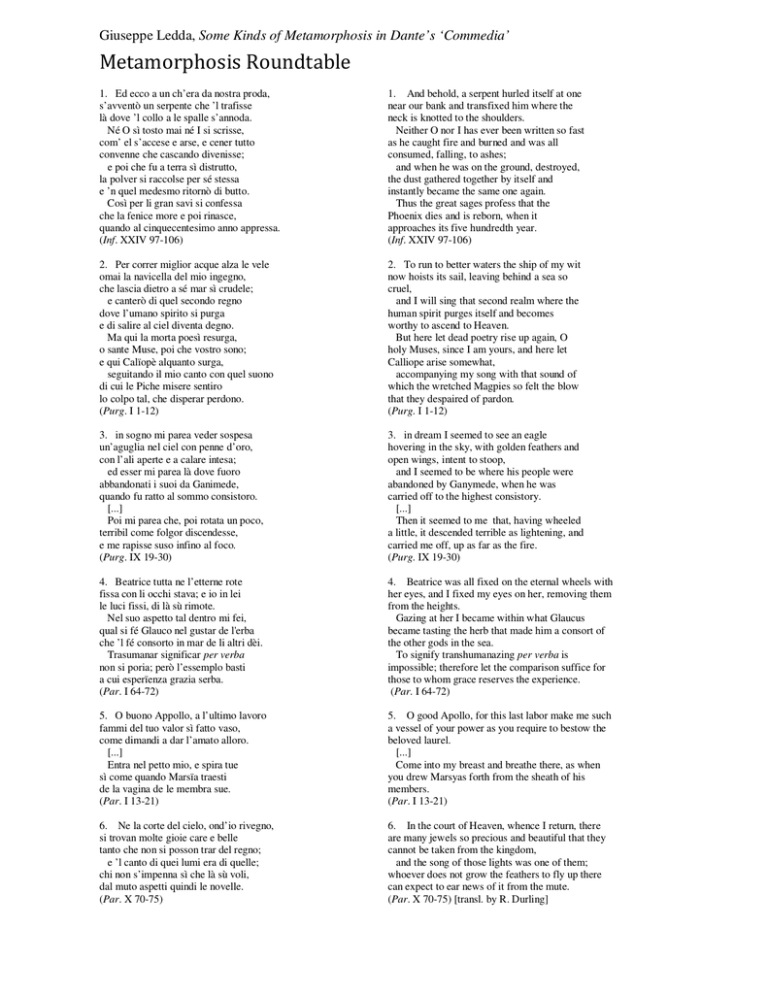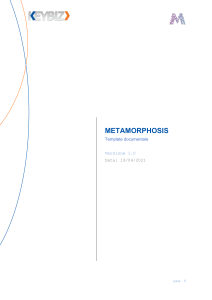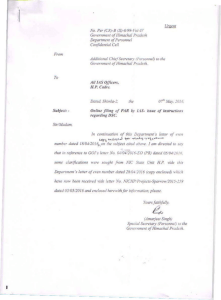Metamorphosis Roundtable Some Kinds of Metamorphosis in Dante’s ‘Commedia’
advertisement

Giuseppe Ledda, Some Kinds of Metamorphosis in Dante’s ‘Commedia’ Metamorphosis Roundtable 1. Ed ecco a un ch’era da nostra proda, s’avventò un serpente che ’l trafisse là dove ’l collo a le spalle s’annoda. Né O sì tosto mai né I si scrisse, com’ el s’accese e arse, e cener tutto convenne che cascando divenisse; e poi che fu a terra sì distrutto, la polver si raccolse per sé stessa e ’n quel medesmo ritornò di butto. Così per li gran savi si confessa che la fenice more e poi rinasce, quando al cinquecentesimo anno appressa. (Inf. XXIV 97-106) 1. And behold, a serpent hurled itself at one near our bank and transfixed him where the neck is knotted to the shoulders. Neither O nor I has ever been written so fast as he caught fire and burned and was all consumed, falling, to ashes; and when he was on the ground, destroyed, the dust gathered together by itself and instantly became the same one again. Thus the great sages profess that the Phoenix dies and is reborn, when it approaches its five hundredth year. (Inf. XXIV 97-106) 2. Per correr miglior acque alza le vele omai la navicella del mio ingegno, che lascia dietro a sé mar sì crudele; e canterò di quel secondo regno dove l’umano spirito si purga e di salire al ciel diventa degno. Ma qui la morta poesì resurga, o sante Muse, poi che vostro sono; e qui Calïopè alquanto surga, seguitando il mio canto con quel suono di cui le Piche misere sentiro lo colpo tal, che disperar perdono. (Purg. I 1-12) 2. To run to better waters the ship of my wit now hoists its sail, leaving behind a sea so cruel, and I will sing that second realm where the human spirit purges itself and becomes worthy to ascend to Heaven. But here let dead poetry rise up again, O holy Muses, since I am yours, and here let Calliope arise somewhat, accompanying my song with that sound of which the wretched Magpies so felt the blow that they despaired of pardon. (Purg. I 1-12) 3. in sogno mi parea veder sospesa un’aguglia nel ciel con penne d’oro, con l’ali aperte e a calare intesa; ed esser mi parea là dove fuoro abbandonati i suoi da Ganimede, quando fu ratto al sommo consistoro. [...] Poi mi parea che, poi rotata un poco, terribil come folgor discendesse, e me rapisse suso infino al foco. (Purg. IX 19-30) 3. in dream I seemed to see an eagle hovering in the sky, with golden feathers and open wings, intent to stoop, and I seemed to be where his people were abandoned by Ganymede, when he was carried off to the highest consistory. [...] Then it seemed to me that, having wheeled a little, it descended terrible as lightening, and carried me off, up as far as the fire. (Purg. IX 19-30) 4. Beatrice tutta ne l’etterne rote fissa con li occhi stava; e io in lei le luci fissi, di là sù rimote. Nel suo aspetto tal dentro mi fei, qual si fé Glauco nel gustar de l'erba che ’l fé consorto in mar de li altri dèi. Trasumanar significar per verba non si poria; però l’essemplo basti a cui esperïenza grazia serba. (Par. I 64-72) 4. Beatrice was all fixed on the eternal wheels with her eyes, and I fixed my eyes on her, removing them from the heights. Gazing at her I became within what Glaucus became tasting the herb that made him a consort of the other gods in the sea. To signify transhumanazing per verba is impossible; therefore let the comparison suffice for those to whom grace reserves the experience. (Par. I 64-72) 5. O buono Appollo, a l’ultimo lavoro fammi del tuo valor sì fatto vaso, come dimandi a dar l’amato alloro. [...] Entra nel petto mio, e spira tue sì come quando Marsïa traesti de la vagina de le membra sue. (Par. I 13-21) 5. O good Apollo, for this last labor make me such a vessel of your power as you require to bestow the beloved laurel. [...] Come into my breast and breathe there, as when you drew Marsyas forth from the sheath of his members. (Par. I 13-21) 6. Ne la corte del cielo, ond’io rivegno, si trovan molte gioie care e belle tanto che non si posson trar del regno; e ’l canto di quei lumi era di quelle; chi non s’impenna sì che là sù voli, dal muto aspetti quindi le novelle. (Par. X 70-75) 6. In the court of Heaven, whence I return, there are many jewels so precious and beautiful that they cannot be taken from the kingdom, and the song of those lights was one of them; whoever does not grow the feathers to fly up there can expect to ear news of it from the mute. (Par. X 70-75) [transl. by R. Durling]


